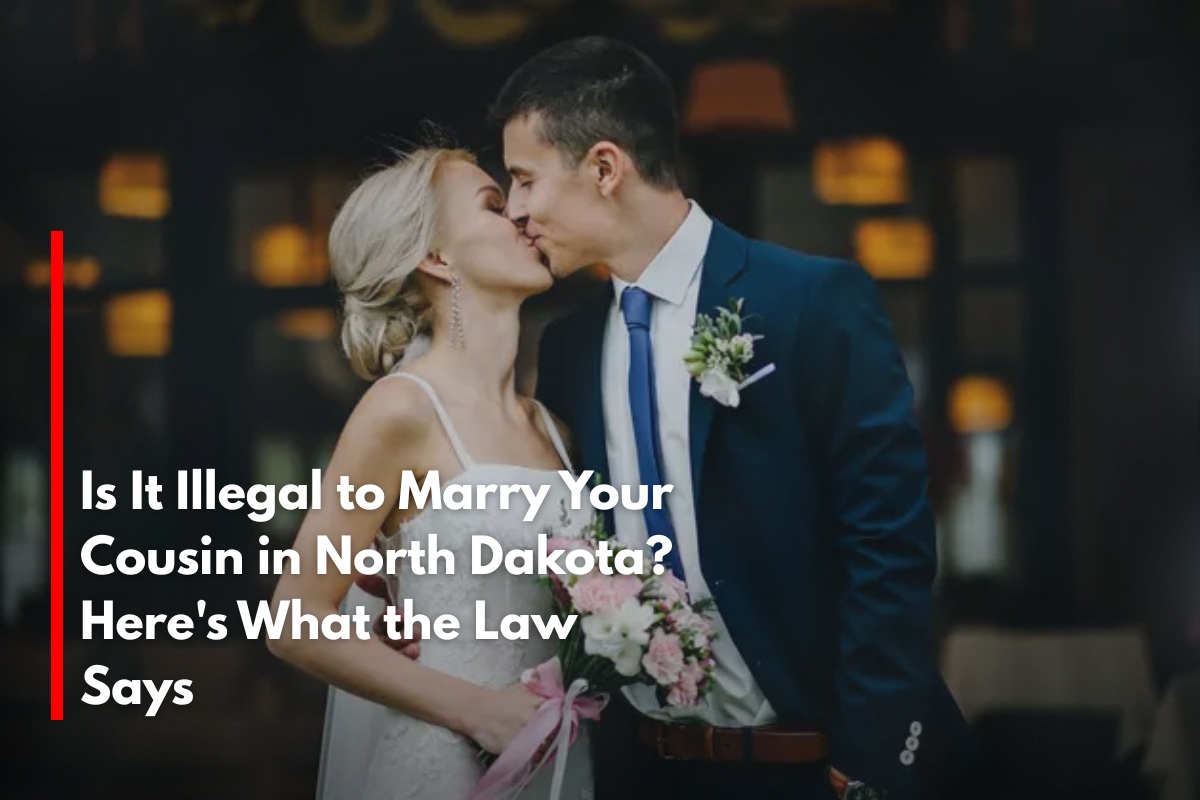Marrying a cousin is a topic often surrounded by legal restrictions and social debate across various parts of the United States. In North Dakota, the question of whether cousins can legally marry is expressly addressed by state law.
This article provides a clear overview of North Dakota’s stance on cousin marriage, what relationships are prohibited, and important considerations for couples thinking about tying the knot in the state.
North Dakota’s Ban on First Cousin Marriage
In North Dakota, it is illegal to marry your first cousin, whether they are a full cousin (whole blood) or a half cousin (half blood). The state’s marriage laws explicitly prohibit marriage between first cousins due to genetic and social concerns aimed at preventing potential hereditary health risks and preserving family dynamics.
This ban extends to both first cousins of the whole blood (children of siblings who share both parents) and first cousins of the half blood (children of siblings who share only one parent).
What Cousins Can Marry in North Dakota?
While first cousin marriages are prohibited, North Dakota law allows marriages between more distant relatives. This includes:
First cousins once removed (for example, the child of your first cousin)
Second cousins
Third cousins and more distant kinships
For these relatives, marriage is legally permitted without restrictions by the state.
No Recognition of Out-of-State Cousin Marriages
North Dakota does not recognize first cousin marriages that were legally performed in other states where such unions are allowed. The law states that if a marriage is prohibited within North Dakota, it will not be considered valid even if entered into legally elsewhere.
This means couples who marry as first cousins in states permitting it cannot move to North Dakota and expect their marriage to be legally recognized.
Other Closely Related Marriages Prohibited
In addition to first cousins, North Dakota bans marriage between the following relatives:
Siblings (including half siblings)
Grandparents and grandchildren
Uncles/aunts with nieces/nephews
These restrictions are consistent with nationwide trends to prevent marriages between close blood relatives.
Marriage License Application and Related Processes
When applying for a marriage license in North Dakota, applicants may be asked if they are related to their intended spouse. While there may not always be an explicit breakdown, officials are trained to detect prohibited degrees of relation and may require documentary proof or clarification.
Copies of marriage laws are typically available at county clerk offices to ensure applicants understand the legal boundaries.
Social and Religious Considerations
While some states allow first cousin marriages, cultural norms, and religious doctrines vary. For example, the Roman Catholic Church generally discourages but can grant dispensations for cousin marriages under certain conditions.
Couples in North Dakota interested in marrying cousins should consider both the legal restrictions and religious or cultural factors that may apply.
To summarize, North Dakota law clearly prohibits marriages between first cousins, whether they are full or half cousins. More distant cousins are allowed to marry, but first cousin marriages—whether conducted in-state or elsewhere—are not legally recognized.
Those considering marriage should carefully review the state’s marriage prohibitions and consult county officials or legal counsel to avoid invalid unions. Understanding the law helps couples comply with legal requirements and make informed decisions about their future together.
Sources
(https://en.wikipedia.org/wiki/Cousin_marriage)
(https://dataminingdna.com/can-first-cousins-marry-in-north-dakota/)
(https://us1033.com/kissing-cousins-in-north-dakota-unveiling-marriage-laws/)
(https://getordained.org/state-marriage-laws/north-dakota)
(https://us1033.com/kissing-cousins-in-north-dakota-can-you-marry-your-first/)











